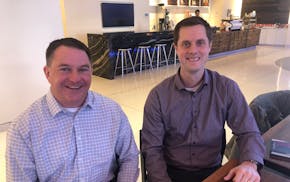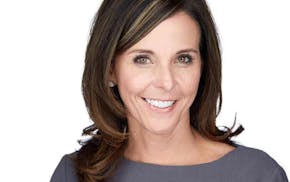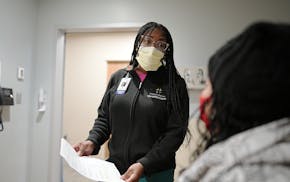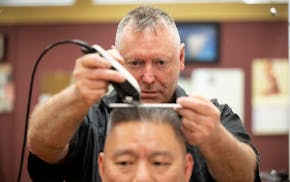The cash spigot for Minnesota's young life-science companies is flowing again after several years of investor trepidation.
Individual "angel" investors and venture capitalists have invested $273 million so far this year in promising medical technology, pharmaceutical, biological and health IT companies. That's more than was raised in 2010, 2011 or 2012, according to Minnesota LifeScience Alley, the industry association.
"We're now experiencing what I think can be characterized as a pretty healthy investment environment," said Shaye Mandle, CEO of LifeScience Alley. "Our data demonstrates that in a tough, complex market … companies are finding dollars. Minnesota is doing better, while most other states aren't."
Mandle and others expect 2014 to top last year's $326 million in investment, making it the best year since the Great Recession. In 2012, health-sciences investment hit a low of $215 million amid concerns over lengthy federal regulatory approvals of new medical devices and drugs, and a sense that the state had lost the edge that helped mold companies like Medtronic and St. Jude Medical.
Medical technology is still the biggest recipient of funds with 75 percent of the total this year, down from 86 percent in 2013. Health IT and biotechnology are fast-growing funding recipients.
The money goes to small companies in need of capital for the regulatory process, to commercialize products and to ramp up production and marketing. That can cost millions. The objective is growing revenue that leads to employment, a public stock offering, or capital from late-stage private investors or a sale to a larger company.
One of the nation's largest medical-focused venture capital funds, San Francisco-based Versant Venture, opened a local office this year.
Two principals of the Minneapolis-area office will address this week's Minnesota Venture & Finance Conference, the Midwest's single-largest event bringing together venture investors and small companies.
"Long story short, we've built a nice portfolio of companies here," said Kirk Nielsen, a Versant managing director who runs the Twin Cities operation. "And I believe the Twin Cities is as good an area as anywhere in the country to build a medical-device company. You've got a lot of good, big companies such as Medtronic, and this allows you to stay close to the people who might buy your company.
"It's similar to technology heavyweights in Silicon Valley," Nielsen said, referring to the symbiotic relationship between established and emerging high-tech companies there. "For an investor this can be a great opportunity."
The Versant team also has moved two companies here from California in which Versant is the lead investor.
One is 30-plus employee Holaira, which several months ago raised $42 million from venture funds to pave the way for a European clinical trial of the company's catheter-based system to treat obstructive lung disease. Holaira is headed by Dr. Dennis Wahr. He founded a company called Lutonix in 2007, another Versant investment that was sold to C.R. Bard in 2011 for about $225 million.
Versant also has funded local medical device firm Zyga Technology, which raised an additional $10 million last week. Other local Versant investments include Respicardia, and wellness-technology business RedBrick Health.
A Medtronic alum returns
Meanwhile, Kevin Hykes, an operating partner at Versant, has returned to the Twin Cities with California-born Metavention. It's an early-stage medical device company focused on the development of interventional therapies to treat type 2 diabetes, a disease typically addressed with drugs.
Metavention, which Hykes expects to employ 20 next year, is one of several small start-ups exploring device and surgical approaches. Metavention seeks to modulate the nervous system to change the course and impact of diabetes.
Hykes built California-based Cameron Health and sold it for $300 million in 2012 to Boston Scientific. Before that, he was chief commercial officer at Visiogen, a venture-backed ophthalmology company that was acquired by Abbott Medical Optics in 2009 for about $400 million.
Hykes, 48, and Nielsen, 40, are both Minnesotans who once worked at Medtronic. They said they welcomed the chance to return to the Twin Cities.
Versant, founded in 1999, has $1.6 billion under management and about 100 portfolio companies.
"All in all, it's an awesome time for start-ups for Minnesota," said Dan Carr, a veteran observer and promoter of the state's entrepreneurs. "Health care investing is up these days. All sectors benefit from the mix of strong talent, quality of life and relative lower cost of building a company here."
A promising Roseville biotechnology firm called Rebiotix recently raised $25 million in a second round from venture investors to prove that healthy microbes stripped from human feces can be used to combat a nasty gastrointestinal disease more effectively and economically than antibiotics and hospitalization.
This year alone, Minnesota health care innovators Rebiotix, Holaira, Inspire Medical, HealthSense, Zyga, Gravie and Tendyne have raised more than $160 million.
Kathy Tune, a partner in the Minneapolis office of Thomas McNerney & Partners, a venture investor that has been cautious in recent years, said the environment seems to be improving and the public offering market is returning for health care firms in biotechnology, pharma and medtech.
Neal St. Anthony • 612-673-7144 • nstanthony@startribune.com

St. Anthony: 'Patient' investing paying off for St. Paul's Hill Capital

Jennifer Smith, leader of Burnsville's Innovative Office Solutions, has died

St. Anthony: Medical professions in Minnesota need more people of color in their ranks



